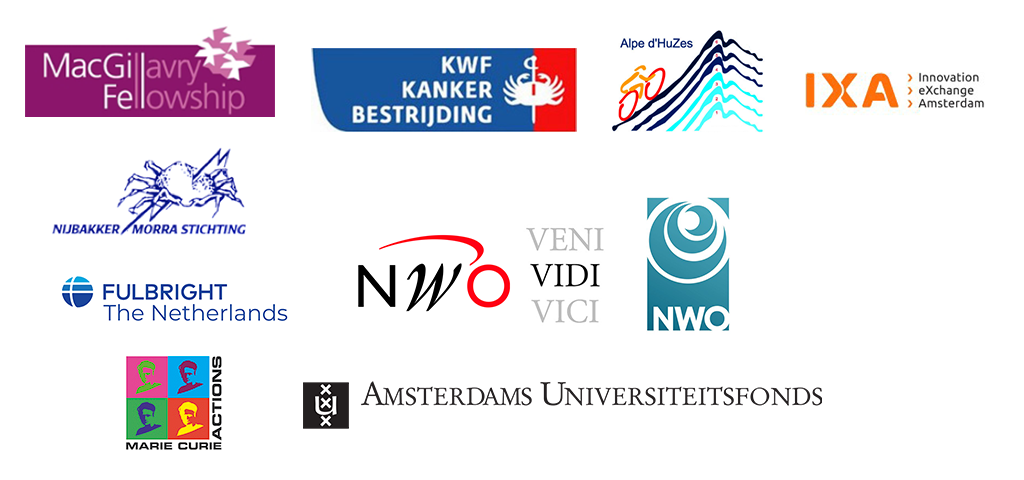what do we study?
Development of a multicellular animal - including the human body - requires tight control of cell proliferation,
differentiation and polarized cell movements to ensure the correct assembly of cells into complex tissues.
How are such three-dimensional tissues built and maintained?
This is the key question we address in our research. We have two main areas of interest:
 mammary gland or breast (cancer) biology
mammary gland or breast (cancer) biology
 early embryonic development
early embryonic development
why do we study this?
The mammary gland is crucial for the survival of all mammalian species. It has fascinating, complex growth and differentiation properties and is one of the most dynamic tissues in the human body. It is also the tissue in which breast cancer arises.
Despite the fact that approximately 1 in 8 women will develop breast cancer during her lifetime, and despite decades of work, we still don't fully understand how different subtypes of breast cancer arise, and we still cannot offer every woman diagnosed with the disease an effective, personalized treatment.
Early embryonic development is the first time at which cells in a complex multicellular animal have to make important decisions, namely which specific cell type they are going to turn into. At the same time, cells need to migrate over considerable distances to ensure that the early embryo obtains form and function.
Although cells have remarkable buffering capacities, which ensure that they ignore noise and respond to specific signals at the right time and place, minor mistakes (or subtle genetic variations) can cause developmental defects.
what is the impact of our work?
Our research is largely curiosity driven with the goal to close fundamental knowledge gaps in biomedical research.
In fact, we tackle a core question in biology, which is how cells send, receive and interpret molecular signals
(which are subtle and dynamic) and subsequently integrate this information to determine their identity and behavior
(which needs to be reliable and robust).
By investigating these processes at the molecular, cell and tissue level, we not only study fundamental principles of how life operates, but also work at the exciting interface of developmental, stem cell and cancer biology.
As such, our research has the potential for long term impact on human health and wellbeing, by helping to identify new entry points for prevention, diagnosis and cure.
how do we study this?
We use a combination of model systems and experimental approaches, including (but not limited to) lineage tracing analyses, different -omics and bioinformatics approaches, primary 3D organoid cultures and CRISPR/Cas (epi)genome editing.
This allows us to study and dissect complex biological problems from different angles and across multiple scales of complexity.
Or, as we like to put it: "from man and mouse to molecule".
 Read more about our research (for scientists)
Read more about our research (for scientists)
 Read more about our research (for non-scientists, in English)
Read more about our research (for non-scientists, in English)
 Lees meer over ons onderzoek (voor leken, in het Nederlands)
Lees meer over ons onderzoek (voor leken, in het Nederlands)
want to know more?
We enjoy talking about our research (or science in general) to a wide range of audiences. Whether it is kids, high school students or interested adults, we welcome opportunities to communicate our fascination for the human body (and what goes on inside it at the level of DNA, proteins and cells) to the general public. Contact for speaking or writing engagements.
want to contribute?
We are open to collaborations with industry and SMEs. Contact if our expertise is of interest to you.
You can also adopt a scientist to help build the future.
Whether you have 500 or 500k euros left to spare: reach out to to discuss the opportunities.
Since the start of the lab in 2013, we have received financial support from the following sources:

